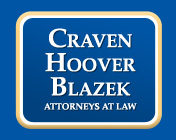There is an old English proverb that is particularly relevant to this topic: “A man who is his own lawyer has a fool for a client.”
Although you certainly have the law-given right to represent yourself in a personal injury lawsuit, it is not the encouraged option for claimants. Continue below to learn 4 critical reasons why, plus what legal recourse you should take to ensure you are awarded the maximum settlement for your damages and losses.

Personal Injury Self-Representation is Not a Good Idea
It is understandable that some accident victims ponder the idea of self-representation since civil litigants do not have a constitutional right to legal representation like criminal defendants do. But most personal injury law firms work on contingency, which means accident victims needn’t worry about affording a lawyer. Under a contingency-fee arrangement, clients do not pay any upfront costs or fees. They only pay after the law firm has obtained a settlement or verdict for them. If the law firm is unable to obtain a settlement for a client, the client owes nothing.
Some people consider representing themselves because they think they can be successful. However, there are many elements and aspects of a personal injury case that require astute and knowledgeable understanding of the law in order to maximize an accident settlement. In fact, this is the first reason why you should not choose to represent yourself in a personal injury lawsuit.
4 Risks You Take When You Choose to Represent Yourself
Complexities of the Legal System
If you plan to represent yourself, understand that the courts will strictly hold you to all related duties. You will be expected to know and understand all rules regarding evidence and civil procedures, plus identify the principal legal matter and raise all arguments. They will also expect you to know about and file all necessary paperwork within their differentiating deadlines. Failure to do so can end a case.
These legal processes are complicated, even for someone with a basic understanding of the court system. A personal injury lawyer is the best resource for obtaining the most money possible for your damages because they are specialized in tort law and have an acute knowledge of the law and courts.
Instant Legal Expenses
As soon as you begin on your personal injury case, the legal expenses will immediately begin to accrue. Clients of personal injury lawyers who operate on contingency are often covered by the law firm in terms of any required upfront legal costs. Clients pay for all legal expenses when their attorneys obtain a settlement for them. Oppositely, anyone representing themselves will be forced to pay their own legal costs from start to finish, which may include court costs, filing fees, copying fees, serving pleadings, depositions, hearing transcribing, expert testimony costs, investigatory costs, and more.
Less Compensation
It is very difficult for the average personal injury claimant to gain the full value of their case when representing themselves. Attempting to do so would certainly pose all sorts of challenges. Not only do personal injury lawyers know how to negotiate with insurance companies, especially since they are acutely trained to dodge the common tactics used by insurance companies to lower the value of a claimant’s case, but they know how to accurately evaluate your claim’s full worth.
Complicated Lien Resolution
For most personal injury cases, an awarded settlement means that at least one healthcare lien must be resolved with a government healthcare program or private insurer, typically Medicaid or Medicare, but sometimes the Veterans’ Administration. This process of lien resolution for personal injury settlements requires seasoned legal knowledge and training. Self-representing personal injury claimants often find themselves stuck in regulatory traps and red-tape mazes.
Do you still need more convincing that a personal injury law firm is the right choice for your accident case in Indiana? Contact the Law Office of Craven, Hoover, and Blazek P.C. at 317-881-2700 to schedule a free personal injury case evaluation. You can speak directly with a trusted and experienced Indianapolis IN accident attorney over the phone, via online video, or in person at our office. We represent clients throughout the state of Indiana.
Related Posts:
How Much Does a Personal Injury Lawsuit Cost?
Reasons Why Some Personal Injury Claims Take Longer to Settle than Others
Top 4 Questions to Ask a Personal Injury Attorney After a Serious Accident




